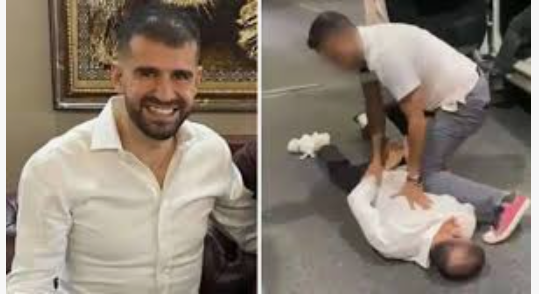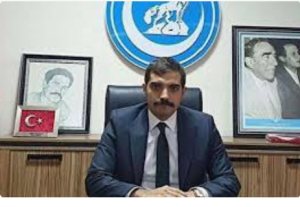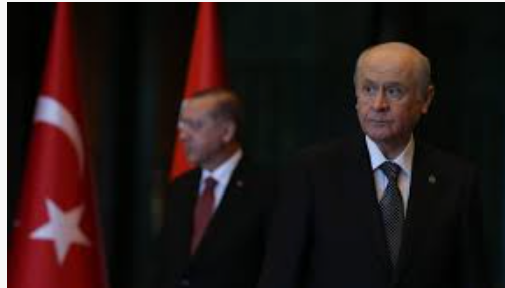While President Recep Tayyip Erdoğan continues to express that Turkey needs “political softening”, (or a normalization of political process among parties), following the local election defeat, it is still uncertain if he and his Justice and Development Party (AKP) will continue partner with far-right Nationalist Movement Party (MHP).
Some experts, joined by AKP members state the necessity of a new roadmap following the electoral defeat, as the AKP became the runner up to rival CHP for the first time in an election since its foundation in 2001. While many AKP insiders blame the defeat on economic misery, the moderate-reformist wing in the party assert that MHP dictating policy in many areas, led by its antagonism to Kurds and the West, played a major role.
Stated differently, most impartial observers believe that Erdogan must ditch MHP to be taken seriously in his call for dialogue with the opposition. Can that happen? AKP-MHP dependency has become nearly symbiotic, with Erdogan needing his partners’ votes to be re-elected, there are sure signs of growing conflict between the allies.
According to Duvar English, there are two lawsuits that might determine the future of the AKP-MHP partnership in the new term: Ayhan Bora Kaplan and Sinan Ateş.
Crisis over Ayhan Bora Kaplan

In recent days, the developments over mafia boss Ayhan Bora Kaplan has been a hot topic in Turkish politics.
In September, Kaplan was arrested on charges of leading an organized crime syndicate shortly after his attempt to leave the country was thwarted.
The crime syndicate reportedly was close to former Interior Minister Süleyman Soylu, who helped it to eke out rival gangs and expand into new business lines during his term.
Recently, three high-ranking police officers in Ankara assigned to the case have been suspended from their posts within the scope of the investigation against the mafia boss under Ali Yerlikaya’s interior ministry. Turkish authorities have detained 28 people in the investigation so far, DW Turkish reported.
The prosecutors have been seeking up to 169 years prison sentence for Kaplan for two counts of murder. In a 19-page statement, a secret witness with codename M7 claimed that there was a relationship of interest between Kaplan and former Ankara Chief Public Prosecutor Yüksel Kocaman.
M7, who confessed to be Serdar Sertçelik, who was accused of being the crime syndicate’s executive manager in the same investigation and fled abroad, told journalist Erk Acarer that he was the secret witness. He was able to flee under house arrest. He said that the people who helped him to flee were police officers from the Ankara Security Directorate.
Sertçelik later said he was forced to give statement when he became a secret witness about former Justice Ministers Bekir Bozdağ and Abdulhamit Gül, Health Minister Fahrettin Koca, Süleyman Soylu, President Recep Tayyip Erdoğan’s chief of staff Hasan Doğan, one of Erdoğan’s advisors Mücahit Aslan and former Interior Minister Süleyman Soylu’s cousin Sadık Soylu, as part of his plea deal.
He also claimed that the Ankara Security Directorate was in the process of carrying out a “coup attempt against the AKP.”
After this development, Ankara Deputy Police Chief Murat Çelik, Organized Crime Branch Director Kerem Gökay Öner, Assistant Director Şevket Demircan and Commissioner Ufuk Gültekin, who were in charge of the Ayhan Bora Kaplan operation, were suspended.
The Ankara Chief Public Prosecutor’s Office launched an investigation against these officers for “conspiracy to commit a crime” under the heading “crimes against the constitutional order and its functioning” in the Turkish Penal Code. In other words, the police officers were charged with conspiracy to commit the crime of “coup attempt.” Three of the officers were detained.
Serdar Sertçelik’s allegation that the Ankara Security Directorate attempted a coup against the AKP and the audio recording he released about it was reportedly an indicator of the power struggle within the ruling People’s Alliance, which was particularly heated between current Interior Minister Ali Yerlikaya, and former Interior Minister Süleyman Soylu.
Yerlikaya’s camp claims that the investigation is targeting criminal organizations and people linked to them.
On May 15, he tweeted in an aggressive tone, saying, “Under the leadership of our President, we have not, we do not and we will not let organized crime organizations, urban thugs, poison traffickers who have become international cartels, internationally organized migrant smugglers, illegal structures and criminal centers in contact with foreign intelligence services.”
The gov’t ally MHP, which supports Soylu, is against Yerlikaya. Newspapers and TV channels close to the government, led by the daily Sabah, also criticized Ankara Police Chief Engin Dinç and Interior Minister Yerlikaya over the recent developments.
This week, Dinç was reportedly asked to resign, which he refused.
Speaking at his party’s parliamentary group meeting on May 14, MHP leader Devlet Bahçeli said “There is a conspiracy that cannot be passed over with the suspension of a few police chiefs, as the target is the Nationalist Movement Party, the AKP, the People’s Alliance and ultimately Turkey.”
On May 14 evening, Erdoğan held a unscheduled meeting with Justice Minister Yılmaz Tunç and the National Intelligence Agency (MİT) head İbrahim Kalın.
On May 16, authorities detained one police commissioner and three more civilians in the investigation launched against organized crime syndicate leader Ayhan Bora Kaplan.
Assassination of Sinan Ateş

Another hot topic in Turkish politics is Sinan Ateş, former head of the ultra-nationalist far-right Grey Wolves connected to Nationalist Movement Party (MHP), who was assassinated in December 2022.
An indictment has been recently prepared into the assassination, deemed as being far from ensuring justice. Some police officers as well as Nationalist Movement Party (MHP) and Grey Wolves members were reportedly involved with the murder., as alleged by the victim’s spouse, who were not mentioned in the indictment.
18 suspects were initially detained regarding the murder. Six of the suspects has been arrested on charges of intentional manslaughter.
Recently, the footage of the moments that Ateş was shot was made public. On May 9, online news outlet T24 reported that gunman Eray Özyağcı was taken from Ankara to Istanbul after the assassination, and the car was driven by Tolgahan Demirbaş and Emre Yüksel, former Grey Wolves executives. They are included in the indictment as “the instigators.”
T24 also shared the footage of the car, which had strobe lights installed. Strobe lights are supposed to be installed on a car specially designed for emergencies or priority tasks. The indictment did not include this detail.
Journalist İsmail Saymaz on May 13 reported the messages between Ateş and his friend Ömer Çağrı Özdemir, texted before the assassination. Ateş told Özdemir that “they decided to kill me.”
The indictment also did not mention why Ateş was assassinated and did not cite Grey Wolves and the MHP.
The judiciary might be forced take necessary steps as the oppositional media continues to unearth more details, which would increase the tension between the AKP and MHP.
It is possible that Erdogan will use these two cases to defame MHP in the public eye, which would grant him a good excuse for breaking-up the alliance. Alternatively, he may be as concerned as Bahceli about the judiciary stepping on MHP’s toes, in which case Interior Minister Ali Yerlikaya may be sacked.
Follow our English language YouTube videos @ REAL TURKEY: https://www.youtube.com/channel/UCKpFJB4GFiNkhmpVZQ_d9Rg
And content at Twitter: @AtillaEng
Facebook: Real Turkey Channel: https://www.facebook.com/realturkeychannel/
